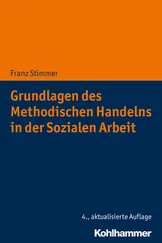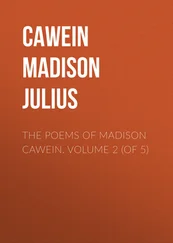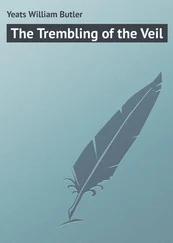R. Trembly - Madigan
Здесь есть возможность читать онлайн «R. Trembly - Madigan» весь текст электронной книги совершенно бесплатно (целиком полную версию без сокращений). В некоторых случаях можно слушать аудио, скачать через торрент в формате fb2 и присутствует краткое содержание. Жанр: Вестерн, на английском языке. Описание произведения, (предисловие) а так же отзывы посетителей доступны на портале библиотеки ЛибКат.
- Название:Madigan
- Автор:
- Жанр:
- Год:неизвестен
- ISBN:нет данных
- Рейтинг книги:5 / 5. Голосов: 1
-
Избранное:Добавить в избранное
- Отзывы:
-
Ваша оценка:
- 100
- 1
- 2
- 3
- 4
- 5
Madigan: краткое содержание, описание и аннотация
Предлагаем к чтению аннотацию, описание, краткое содержание или предисловие (зависит от того, что написал сам автор книги «Madigan»). Если вы не нашли необходимую информацию о книге — напишите в комментариях, мы постараемся отыскать её.
Madigan — читать онлайн бесплатно полную книгу (весь текст) целиком
Ниже представлен текст книги, разбитый по страницам. Система сохранения места последней прочитанной страницы, позволяет с удобством читать онлайн бесплатно книгу «Madigan», без необходимости каждый раз заново искать на чём Вы остановились. Поставьте закладку, и сможете в любой момент перейти на страницу, на которой закончили чтение.
Интервал:
Закладка:
They sent Pete to the finest schools in England and France where he was a top student learning arithmetic and English, among other things. But Pete’s best and most loved subject was archaeology. It was there that he learned of the Aztecs and how they fled their own country with statues of gold and silver.
He studied everything he could about the Aztecs and how Cortes conquered their land, the country now called Mexico. But what most interested him was the fact that the Aztecs, although grain growers, were the best miners in the world. They worshiped the sun god and made many temples in his honor, and all the temples were covered in gold.
Gold to the Aztecs was as wood is to us. So when Cortes’ men took Montezuma’s brother-in-law hostage, after Montezuma was killed by one of his own people, they asked for a room full of gold for his return. The Aztecs were quick to reply.
Gold came carried in by great quantities. It was even said that from the mountains a great chain of gold more than a mile in length was being brought to help pay the ransom. Then Cortes’ men made a fatal mistake. Fearing a reprisal from the Aztecs once their hierarch was released, they killed him instead. They hoped to keep his death secret. But it was not to be. His death was found out almost immediately, and the news went out by runners so that all shipments of precious metal and jewels came to a stop.
The great chain of gold was said to have been dumped in a high mountain lake where only the privileged few of the Aztec priests would know its location. Those slaves that carried it were put to death to keep its hiding place safe from the conquistadors.
But what was of more importance to Pete LaRue was that the Aztecs gathered up all the gold and other precious metals and jewels they could and took them to the north to be hidden against any more invasions by the fair-skinned people that came from the sea.
Pete LaRue searched for years for any documents that might give a clue as to where the Aztec gold was hidden. When he was done with schooling and returned to New York, he knew as much as any man alive about the Aztec civilization. And LaRue had a pretty good idea where such a people might look to hide their riches.
Many men went down into Mexico in search of the Aztec wealth, only to find nothing. LaRue was sure the gold and silver were not in Mexico any longer. It was his educated guess that fearing more attacks from the conquistadors, the Aztecs took as much of their wealth as a thousand men could carry and crossed into the Colorado Territory somewhere west of the Continental Divide, and not too far, maybe twenty-five miles or so from the town of Durango or maybe even a little south into New Mexico. But LaRue was sure it was somewhere in the general location of Durango.
To further strengthen his theory were the legends told by the Indians of the Southwest, about many men in strange dress carrying baskets full of gold into the mountains of Colorado. It was there that these strange people moved into dwellings upon the cliffs that were built years before their arrival by an ancient race of grain growers. Here the Aztecs lived for many years until they all disappeared one night, taking all evidence of their visit with them, just like the old ones before them, never to be seen again.
The Indians of this area would not go near the cliff dwellings for fear of the evil spirits they believed to be there, nor would they show any white men the way.
It was in this area that LaRue concentrated his search for the hidden treasure. He knew that if he could find the mysterious dwellings of the ancient people, the gold should be close by.
Another problem to deal with was that this land was the home of the Ute, Navajo, and roaming bands of Apaches. Any man caught out in the open was sure to be tortured to death.
LaRue spent many years searching for these mysterious houses built on the side of the cliffs, hiding by day and searching by the light of the moon when the Indians were in their camps, but to no avail.
Then one night as he was returning to camp, he came across a prospector with an arrow in him. Dying, the man told of finding the abode of the long lost people. He was able to tell LaRue of its general whereabouts, but with a warning, “Do not go searching for it alone!”
Before the old man died, he held out his hand and to LaRue’s amazement, in it was a little gold figurine. One other thing got LaRue’s attention. The arrow that killed the old prospector had a point made out of gold hardened with silver.
Now the gold fever caught hold of Pete LaRue like the lure a beautiful woman holds some men against their will. For hours he would sit and look at the small figurine, almost willing it to give up its secrets. He soon grew slim from not taking the time to eat. At the end of a month he looked haggard and unkempt; his mind drifted and he could not remember from one day to the next.
Finally out of his mind with fever, he wandered from his hiding place out into the desert to die, the figurine clutched in his hand. The Utes found him there lying in the sand, clothes torn from his body. They found him there talking to himself, yet they let him live.
With some Indians there is a belief that the spirit of the one you kill becomes part of your own. It makes you stronger, so they believe. To kill one that is out-of-his-head crazy is to make your own spirit weak, but to help that person is big medicine.
So they took Pete LaRue to a cabin built in the rocks with only one way in. It went unseen except by a very few for many years. LaRue had once passed only yards from its entrance on one of his searches and hadn’t seen it. The Utes took him there but would go no closer than fifty feet from the cabin. Then they left leaving Pete to go the rest of the way on his own.
Even in the most shattered of minds, there is an instinct for survival, and Pete LaRue found his way into the cabin. There he found tins of food to eat and a small spring in back of the cabin that gave up clear, sparkling water. Under the cot he found clothes. It was obviously the cabin of the old prospector.
In a few days his mind again grew calm. Having found himself at death’s door and surviving, Pete LaRue again became the thinker he once was. And for the next few weeks while he got his strength back, he planned on how to find the treasure he was looking for.
The first thing he realized was that it would take help in getting the gold, and that meant he would have to be able to make a payroll. Since he was penniless, that left only one avenue open to him: he would have to give up a share of whatever he found. LaRue also knew he would only get two kinds of men for a proposition like that: prospectors, who usually liked to work alone and would, if given the chance, strike out by themselves; the second choice was to hire a gang of drifters and outcasts.
The sound of a coffee pot being dropped snapped LaRue back to the present.
The men were starting to move about, getting restless at having to wait, and anxious to be on their way again.
The sun was setting in the west, yet there was still enough light to see by. From where Pete sat he could see the men were saddled and ready to move.
His eyes jumped from one man to the next, analyzing, then dismissing each man in turn. Now that Manning was gone, he would have little trouble with the men.
Someone had saddled LaRue’s horse for him, so all that was needed was to mount up and be on the way. Pete pulled himself erect and walked stiffly to his horse. The men waited for him before riding off toward the distance unknown.
“What do you want us to do, Pete?” Shorty asked as LaRue rode past.
LaRue thought for a moment. “Just fan out. Everyone pick his own trail. It will be harder to see us if we’re all spread out than if we’re in one big bunch. A couple of you men find the bodies and bury them!” It felt good to be giving orders again without any questions from the likes of Manning.
Читать дальшеИнтервал:
Закладка:
Похожие книги на «Madigan»
Представляем Вашему вниманию похожие книги на «Madigan» списком для выбора. Мы отобрали схожую по названию и смыслу литературу в надежде предоставить читателям больше вариантов отыскать новые, интересные, ещё непрочитанные произведения.
Обсуждение, отзывы о книге «Madigan» и просто собственные мнения читателей. Оставьте ваши комментарии, напишите, что Вы думаете о произведении, его смысле или главных героях. Укажите что конкретно понравилось, а что нет, и почему Вы так считаете.











